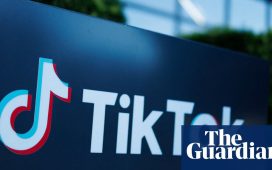A reporter examines a 23andMe DNA genetic testing kit in Oakland, California.
Cayce Clifford | Bloomberg | Getty Images
Genetic testing start-up 23andMe is getting sued for over $100 million in damages by Celmatix, a former business partner that it began working with in 2015.
The lawsuit, which was filed on Tuesday in the Supreme Court of New York, where Celmatix is based, alleges that 23andMe, one of the largest at-home DNA testing companies, breached a research contract that it entered into in November of 2015 and caused Celmatix significant financial setbacks.
23andMe, the larger player of the two companies, has raised more than $700 million in financing and the company says it has more than 10 million customers. Its investors include some of the largest drug makers, such as GlaxoSmithKline, and its business is split between its research partnerships, drug development division and DNA testing product that is sold to consumers.
A spokesperson for 23andMe said the company does not comment on pending litigation.
Celmatix, which was founded more than a decade ago, raised about $20 million before it signed its deal with 23andMe and has pulled in more than $80 million in total funding. Celmatix alleges in the lawsuit that it could not raise more money after its relationship with 23andMe fell apart. Celmatix says it wanted to raise $50 million to help create fertility tests for women. Celmatix says in the lawsuit that it had to set aside its plans and focus on building relationships with drug makers and on developing new drugs, putting its diagnostics product lines on hold.
According to the lawsuit, Celmatix first approached 23andMe about forming an agreement in 2015, saying it offered to pay the company for access to its data-set and research support so it could develop new diagnostic tools for women’s health. The pitch to 23andMe was to help the company analyze its relatively noisy data-sets, and bring in its team of scientists to help them make sense of it.
The two companies also forged plans to recruit a cohort of female users and survey them about their reproductive health, which in theory would be used to create a “general fertility prognosis product” aimed at helping women proactively plan the optimal time to start a family. The companies said in a news release in February 2017 that their goal was to recruit 4,500 women.
23andMe and Celmatix signed an exclusive agreement, the lawsuit says, meaning 23andMe could not work with rival companies in the fertility and infertility space for a decade. But Celmatix alleges that 23andMe got buyer’s remorse when the women’s health space started to heat up, realizing it had potentially missed out on revenue opportunities.
The suit alleges that 23andMe CEO Anne Wojcicki directed her team to make the agreement with Celmatix “go away,” and the company then pursued a strategy of “refusals, cancellations and delays.”
By 2018, 23andMe asked Celmatix to terminate the deal and its exclusivity clause, the lawsuit says. Celmatix says in the lawsuit that 23andMe had “no right” to end the deal because Celmatix held up its end, including paying $10 million to 23andMe.
At that point, Celmatix claims that 23andMe then made steps to thwart its financing round. Celmatix had retained an investment bank, which it did not name, to raise up to $50 million to scale its fertility test. But right before the roadshow, the lawsuit states the bank “backed out due to undue economic pressure from 23andMe.”
In an interview with CNBC, Celmatix’s CEO Piraye Yurttas Beim described the resulting fallout as “a domino effect.”
She said that the company has seen a decrease in its valuation, it ceased work on its fertility test called Fertilome, made significant layoffs and suspended operations in its clinical labs. She also said Celmatix was prevented from publishing scientific research.
All of that, the lawsuit says, resulted in over $100 million in damages Celmatix is asking for.
“Now a big part of our business is being held in limbo,” Beim said.
Follow @CNBCtech on Twitter for the latest tech industry news.








